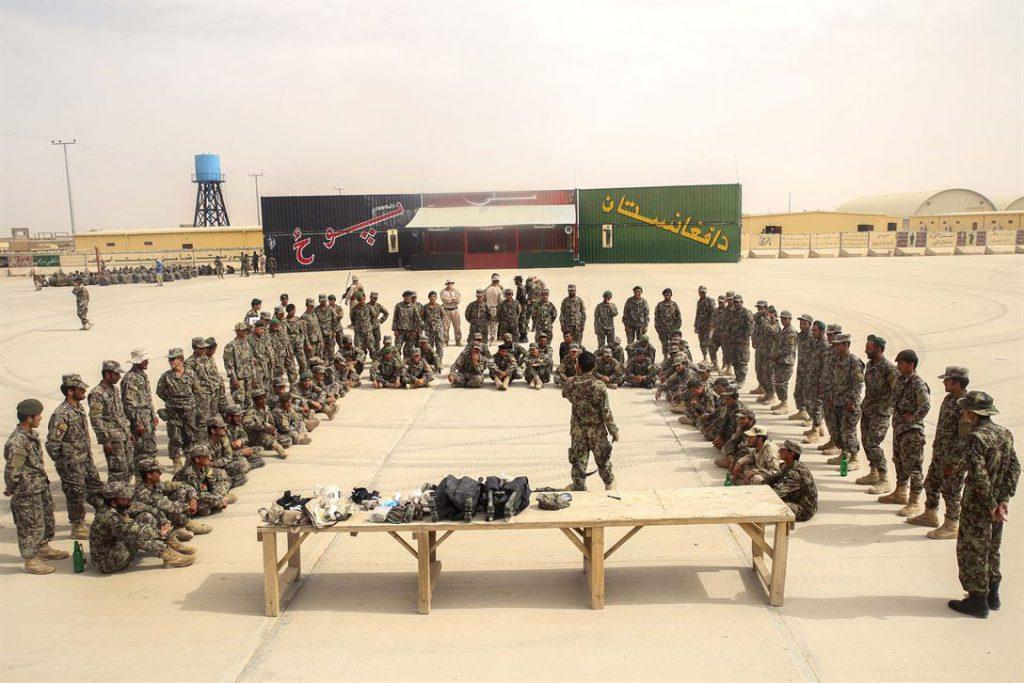
The appalling carnage in the Middle East and Afghanistan hasn’t dampened the appetite for war. It would be absurd to lay the total blame on the US and its allies for those calamities. They faced real threats. Still, the US-led West appears to have won little for the immense expenditure of resources. The main issue those countries now face is what have the democracies lost?
The legitimacy of allied military actions has been hotly debated since 2001. After 9/11 there was a robust justification for the military intervention in Afghanistan. The subsequent 2003 invasion of Iraq is held to have been either within international law or illegal. There were, on the other hand, sound arguments for the reluctant return to combat in Iraq in 2014 to protect the Yazidis and US personnel, and to Syria in response to ISIS atrocities. A rough cost benefit sum might question the strategic return.
The amount of national treasure expended by the US on the war on terror is astonishing.The US has spent an estimated US$4.79 trillion in current dollars between 2001 and 2017 ‘on the wars in Iraq, Afghanistan, Pakistan and Syria and on Homeland Security’. Add to that the long term individual and societal burden from the veterans of those conflicts. What has been achieved?
Sixteen years later, in January 2017, the Special Inspector General for Afghanistan Reconstruction (SIGAR) reported to Congress that ‘reconstruction remains tenuous and incomplete’ and that the risks associated with corruption and the ongoing weakness in the Afghan National Defense and Security Forces (ANDSF) mean that ‘reconstruction efforts could ultimately fail, to the detriment of our national-security goals in Afghanistan’. That’s a significant admission of failure as up until 2016, Congress had appropriated US$70.6 billion to support the ANDSF—60% of the total Afghan reconstruction budget since 2002.
There will be no Marshall Plan for the Middle East. The West cannot afford it. For decades to come millions of people displaced by war will struggle to survive in areas where infrastructure and productive capacity have been destroyed. Nearly half a million Syrians have died in their civil war and the fight against ISIS to date and 11 million people have been displaced, 6.3 million internally and 5.3 million have fled the country. Half of those are children. 10% of the refugees have gone to Europe. By the end of 2015, 4.4 million Iraqis had been displaced internally and over a quarter of a million were refugees. The picture is repeated in Afghanistan, Libya and Yemen.
Across the region the physical destruction is only overshadowed by the tragic loss of human capital. The long term impact on children of the trauma of war in the Middle East and Afghanistan will be significant. The world can look forward to a generation of children who have grown up with a legacy of loss of family, friends and neighbours, shattered communities, no access to adequate health or education, or employment. They will grow up amongst the rubble in a region still marred by vicious sectarian and ethnic rivalries, and struggles by regional and external powers for influence and control. And those that come to maturity in this shattered world will be no less susceptible to inflammatory rhetoric about crusaders and infidels.
In strategic terms, it isn’t sensible to look back with regret or remorse. But it is a useful exercise to learn lessons for future conflicts. The vast investment in the War on Terror has almost certainly created the potential conditions that will give rise to the next wave of violence in the Middle East and Afghanistan.
The new tactical approach won’t help to stem the contagion. It’s not the returning foreign fighters that pose the greatest risk; surely intelligence and security agencies can track and manage them. It’s the new tactic of annihilation and deliberate killing of foreign fighters in the Middle East, combined with treating civilian casualties as an unfortunate externality, that’s the problem. That will bring home the sense of loss and feelings of injustice and resentment to ethnic communities in Europe, US and elsewhere that already feel discriminated against. Home-grown extremism will become more entrenched.
However, at the end of a decade and a half of war, will the Western democracies retain the resilience needed to resist extremism and anti-liberal anti-democratic forces? Commitment to many civil liberties, human rights and previously unquestioned values like habeas corpus, the presumption of innocence and the right to a trial has waned already. The imposition of constraints on democratic rights in the interest of the security of citizens has been a necessity. However, it’s possible to preserve or reclaim some values that distinguish Western democracies from barbarians and extremists.
The way NATO and coalition partners conduct the closing stages of the conflict; the integrity they display in their adherence to the rules of war, international law and norms; and the concern they show for the civilian populations will be crucial. It would be a great statement if, wherever possible, foreign fighters were tried for their war crimes in open courts—simultaneously exposing their criminal ideologies and the West’s commitment to justice.
A small opportunity exists to exhibit the alternative to the fanatical creeds the West has been fighting. There’s a chance to convert military victory in the field into a victory of values. But pass up that opportunity, and the West will have lost.